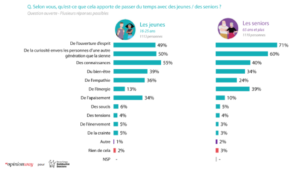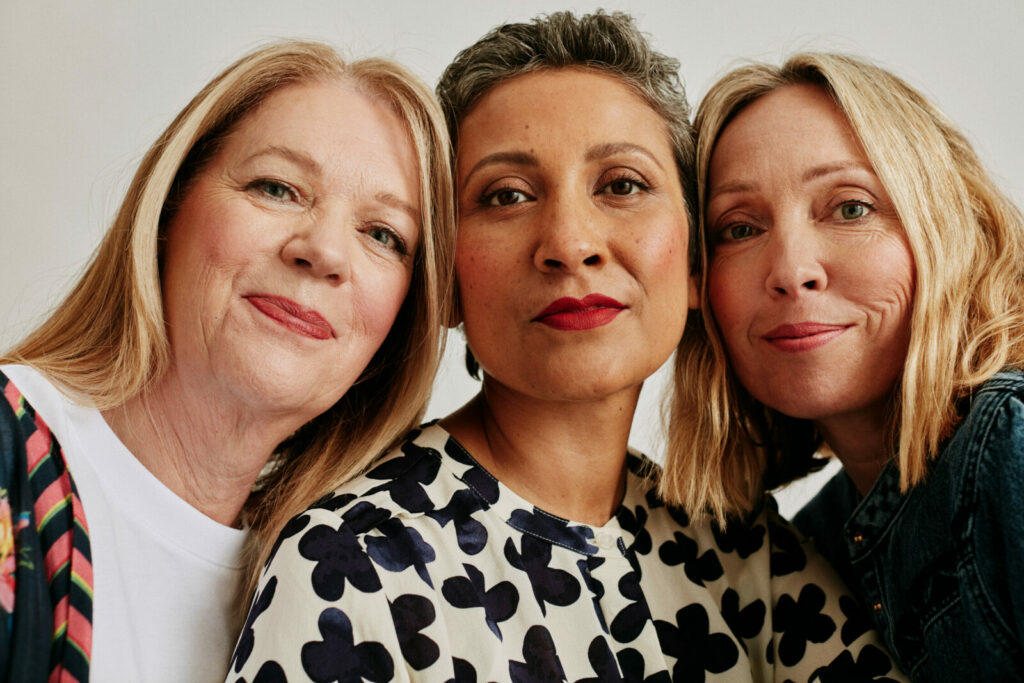The health crisis has led to many forced changes in social relations, particularly between generations. To assess the situation, OpinionWay for Service Civique conducted a survey of 2,232 people, half of whom were young people aged 16-25 and the other half seniors aged 65 and over.
The results show that the health crisis has led to a decline in social relations for 56% of those questioned, both young and old. Beyond that, 21% of young people said that their social relations had strengthened, while 40% of seniors reported stability.
The lack of social relations leads to a greater feeling of loneliness among young people than among older people. Among the 16-25 year olds, 15% said they “suffer a lot of loneliness” and 50% “sometimes”, i.e. a total of 65%, compared to a weaker feeling among those aged 65 and over with 5% saying they “feel it a lot” and 36% “sometimes”. This feeling is aggravated among young people with an income of less than €2,000 per month (71%) and among older people on low incomes (52%) or divorced (53%).
Intergenerational relations seem to have suffered the most from the decline in social relations, with 75% of 16-25 year olds stating that they have reduced their social relations with older people because of the health crisis and 69% of older people stating that their relations with 16-25 year olds have been reduced.
Both age groups share the observation that there is a lack of links or relationships between them, with the older people regretting this lack of exchanges slightly more (71%) than the younger people (61%). The negative impact of this lack of contact is shared in the same proportions: 86% of young people and 90% of older people think that “when they don’t get to know each other enough, the generations have a worse image of each other” and 81% of young people and 87% of older people maintain that “before, 30 or 40 years ago, the generations used to get to know each other more than they do today”. However, they differ slightly on the fact that “today’s society does not favour opportunities for young and old to meet”, with a large half of young people agreeing (56%) compared to three quarters of older people (76%).
88% of young people and 92% of older people think that “in France today, many older people suffer from social isolation”. However, less than 40% of both young and older people know older people who suffer from loneliness or social isolation in their neighbourhood, among acquaintances or in their family. This is a sign of the difficulty in identifying elderly people who are socially isolated.
It is within the family that the regular opportunities for exchanges between the generations are most frequent: 70% of young people and 65% of older people have the opportunity to talk regularly within the family. Outside the family, the opportunities are more limited: 41% of young people say they have the opportunity to do so regularly, compared to 23% of older people. The vast majority of older people (73%) regret the lack of time spent with young people, whereas a large majority of young people (55%) regret this. The main reason given by the older people for this lack of contact is geographical distance for 48% of them, whereas for the young people the geographical distance from the older people they know (36%) explains the lack of contact as much as “professional or family constraints” (41%).

They recognise the reciprocal benefits of these meetings and share them, but not always in the same proportions. Young people think that spending time with older people brings them knowledge (55%), curiosity about another generation (50%), open-mindedness (49%), well-being (39%) and empathy (36%), whereas their elders overwhelmingly appreciate the open-mindedness that this generates (71%), curiosity (60%), knowledge (40%), energy (39%) and well-being (34%). They share the observation that strengthening relationships prevents the mental deterioration of seniors more than their physical deterioration. More than a third of them think that this fights against the prejudices surrounding seniors and against a negative vision of ageing.
Faced with this observation, it is therefore necessary to find a way to establish more links between the generations, which the Service Civique Solidarité Seniors allows, a service known by the majority of young people and by only a third of the older people.
Source: OpinionWay survey for Service civique on intergenerational relations conducted in February 2022 among 2,232 people, half of whom were young people aged 16-25 and the other half seniors aged 65.




